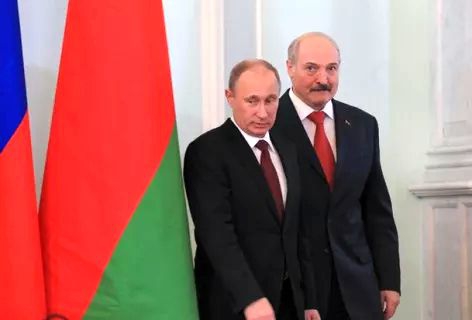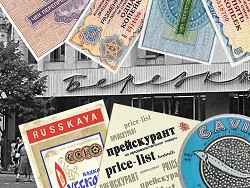
Trading network with the Patriotic name “birch” was a unique phenomenon in the vast one-sixth of the land. Even in the period of total deficit in these shops was all that your heart desires. The only problem of “Birches” was that he took them only in currency or checks, and then ordinary citizens the path to them was closed. How many earned the economy of the USSR in the so-called shops “birch”, still remains a mystery.
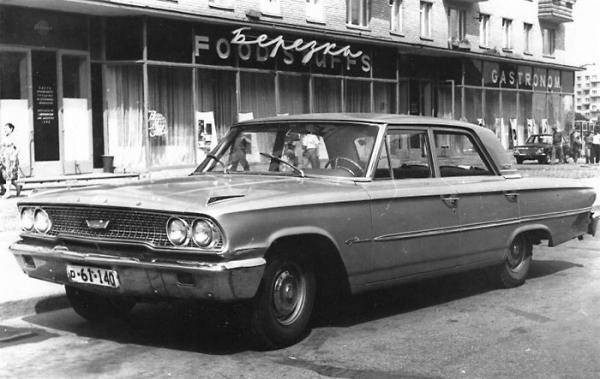
In the USSR the sign in a foreign language could only be seen on the store “birch”
Trading network with the Patriotic name “birch” was a unique phenomenon in the vast one-sixth of the land. Even in the period of total deficit in these shops was all that your heart desires. The only problem of “Birches” was that he took them only in currency or checks, and then ordinary citizens the path to them was closed.
A special ruble.
Shops “birch”, which appeared in the Soviet Union in the early 1960s, were originally of two kinds. To the first belonged the so-called currency “Birches”, the visitors to which was very narrow and closed circle of extremely high-ranking diplomats who were allowed to keep foreign currency on the territory of the USSR. To the second belonged to the receipt stores. There the goods were sold for vouchers.
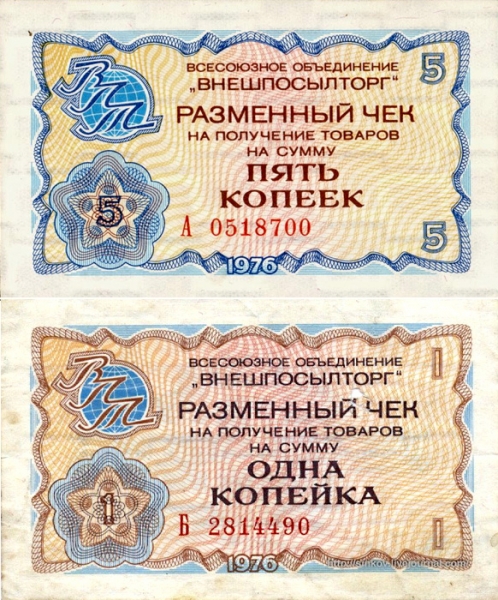
The store birch “birch” colored checks valued much more than a RUB with a portrait of Lenin
The appointment of the first types of shops was simple: the government wanted to obtain additional foreign currency into the coffers of the state. In such shops selling traditional Souvenirs for tourists: Russian vodka, caviar, items of folk crafts. And it was possible to get gold and diamonds. It was truly another world, not similar to surrounding everyday Soviet reality. So, at the time of the Union, among the population of the country even went an anecdote about the Chukchi, jumped over the counter of such a store, asked the salesgirl to give him political asylum.
As for the second type, everything much harder than it might seem. The fact that by the early 1960s, the Soviet Union ceased to be a country behind the iron curtain. Creaking rusty hinges, on the border opened the door through which in two directions began to flow timid trickle of domestic and foreign citizens. Some of them went to look at the “evil Empire”, others are working abroad for the benefit of the Soviet Motherland by experts: specialists, teachers, builders and, of course, journalists. Of course, going abroad the lucky ones paying your salary not “wooden” and hard currency.
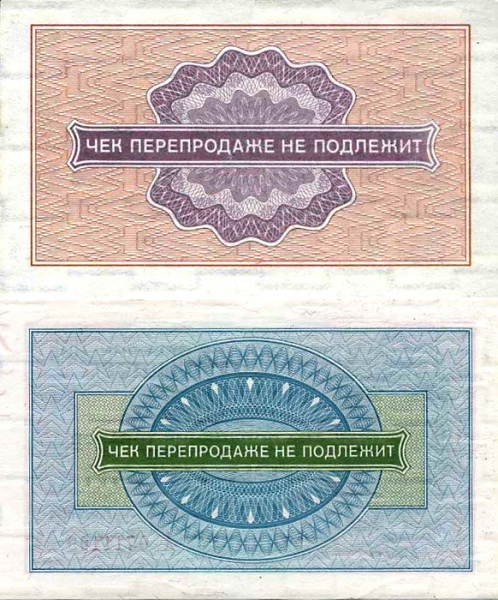
Vneshposyltorg checks for purchases in shops “the birch”
Gradually in the hands of the “elite” started to accumulate foreign currency, which was so necessary to the state. Besides, even the most persistent and stress-taranabant, could not resist the temptations of the West. They returned home with large suitcases stuffed to the brim with goods. Well, here imported luxury they literally “tore off with hands”. It was a real threat to domestic production, because Soviet production quality was inferior to the West. To stop the criminal “shopping” and black marketeering, in 1958 the USSR Council of Ministers, adopted the following decision: the Union’s citizens working abroad, from now on had to translate all their salary on a special foreign currency account in formed the Bank for foreign trade (Vneshtorgbank). In the end, the money from the accounts of foreign workers could buy foreign goods in special directories, later these goods were delivered to the USSR, where happy customers could get them in suitable departments stores for receipts. As a result, much-needed power currency remained exclusively in cashless condition and fell into the hands.
So the state created a system of checks for foreign workers. The value of each check can vary from 1 penny to 100 rubles. As a result, soon all taranabant, from ambassadors to military konsultantov, began to receive a salary cheque. However, some currency citizen the Ministry of Finance was given for current expenses. But it was a measly penny. The main bulk of their earnings, citizens still received checks that were given to them already to return to the great Motherland.
Officially “currency” checks in the domestic ruble was exchanged between them. However, they can be used for a number of payments with utilities, say for housing or garage cooperative. However, the rate of checks against the ruble, was simply wild 1 – to-1. But they can be redeem in the stores, “birch”, which was almost everything.
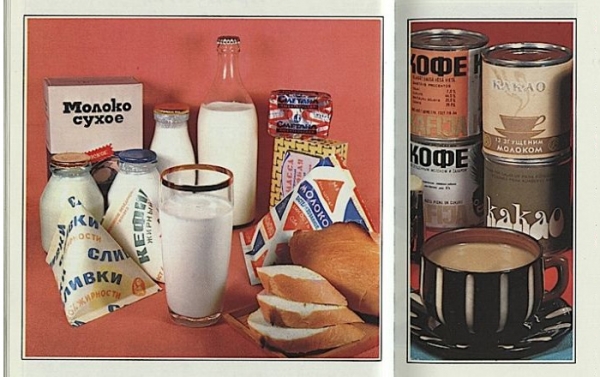
Colorful pictures of foods from the menu of the shop “birch”
A sapling of the Soviet economy.
Certificates were differentiated: bespoleznye and with bands of different colors. Everything depended on what country the citizen is in a capitalist or socialist. Mongolian certificates, for example, was valued just below. While Soviet diplomat, member of the Politburo or journalist who received salary checks, in fact, turned out to be a loser. Because the price of imported goods in the “Birches” was significantly higher than in foreign shops.
Checks were Vneshposyltorg effective way for the Soviet state to confiscate the citizens of the USSR who worked outside their home country foreign currency. A portion of the thus-obtained currency, the state made the purchase of Western consumer goods and sold it several times more expensive than the very citizens who have returned from abroad. It was the unprecedented scale of the economic Scam of the state.
It should be noted that the higher state and party functionaries, as “hyped” the representatives of Soviet culture, the existence of the cheque “Birches” and the cheques had been very unprofitable. Suffice it to recall an interview of singer Alla Pugacheva, who at that time was at the peak of popularity, in which she indignantly recalled these “Torgsin”. Russian star was forced to almost starve yourself.
Foreign exchange in the hands of the singer got enough to eat, and the rest of the singer received a cheque to buy food which was only possible by returning to the USSR in the notorious “the Birches” at fantastic prices. That and I had to eat on foreign tours sandwiches to the daily allowance to buy something from clothes at local stores.
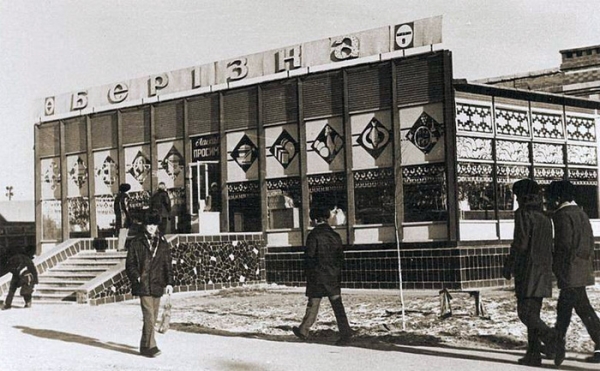
Opened the stores “birch” not in all cities of the USSR
What the government put to the Treasury by this economic deception is unknown. In the bowels of the Ministry of Finance may, these figures are, but they are strictly classified. In all likelihood, the amount was considerable. It is unlikely that she went for the purchase of grain for the people. Most likely, the currency disappeared in the socialist countries that the USSR fully supported.
Cheques on the black market.
Created the stores “birch” not throughout the Soviet Union. You can find them only in Moscow and Leningrad, the capitals of republics, major ports, as well as some regional centers and, of course, resorts. The rumor of capitalist abundance that was hiding somewhere close, at hand of a simple citizen, still resounded throughout the Union. Of course, there were personalities who tried to heat on this hand. For the currency, as we know, was threatened with considerable term. Control in the stores, both for buyers and for sellers were no weaker than. Each store was provided at the state Committee. If he noticed that someone has enjoyed currency, then such a buyer would have immediately been arrested and taken away for questioning, to clarify the ownership of such money. If they owned a citizen illegally – the fate of it in the future was grim. Another thing – checks. Unlike currency “Birches”, in receipt of visitors was much more. And the people whose checks were on hand on a legal basis, was not so little. Besides, raging like never attracted attention to himself because I was getting checks instead of wages by the representatives of various social groups.
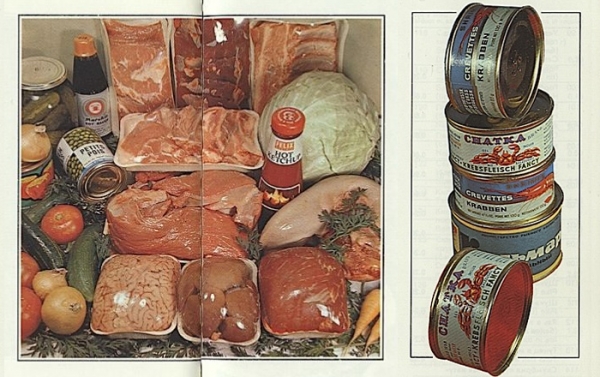
In the shop “birch” you always had to buy the scarce eggs and meat
For example, there could easily be some kind of cleaner from the Soviet Embassy. In the shop could ask about the origin of cheques and ask any supporting documents. But this happened rarely. Basically, the original check was a kind of passport to a world of abundance.
It is easy to guess that the certificates soon became the subject of sale on the underground market currencies. Thanks to a simple but well-functioning mechanisms for checks fell to the hands of fraudsters, who subsequently sold them for two or three rubles at the end of the 70s and on three-five roubles in the 80-ies.
A short period of time, from 1960 to 1962, in addition to the widely known “Birch trees” in the large port cities of international importance existed and shops “Albatross”, designed for sailors overseas flights. Soviet sailors were able to exchange foreign currency for checks “Vnesheconombank”, then had the right to quietly “packages” in the port school. Almost immediately in such ports turned black market trade checks and criminal in the world, a new specialty, called “the Breaker checks”. So-called those crooks that tried to shove the citizens ruble instead of cash for cheques, so-called “dolls”.
As this exchange was initially illegal, law enforcement agencies, as a rule, nobody addressed. Yes and many of the people in mufti, who oversaw “Birches”, and often enough they themselves were what is called “lobe” “lomschikov”.
Network of shops “birch” existed until the late 1980s, when Mikhail Gorbachev was declared the war on privileges. Around the same time, authorities lifted the taboo on the sale of currency, then the existence of currency shops in the trading system of the country became meaningless. All that’s left is nostalgia about the days when “the tale of a beautiful” has become a reality. The only pity is not for everyone.



